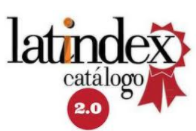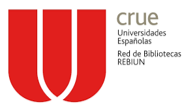Túnez en la era de Kais Saied: ¿crisis democrática o nuevo régimen autoritario?
DOI:
https://doi.org/10.35305/cc.138.197Keywords:
Kais Saied, Túnez, autoritarismo, Covid-19, guerra ruso-ucranianaAbstract
This paper put forward a small analysis of the changes that occurred in the Tunisian institutions after the election of the current president, Kais Saied. By exploiting the fragility of the country's newborn democracy and aided by multiple exceptional conditions, he has indeed been able to carry out significant changes in Tunisia's constitutional order, concentrating power in the hands of the Head of State in a way that has not been seen since the times of Ben Ali. This article covers the main transformations that
affected the institutions of the north African Country to investigate the state of health of its democratic regime, in order to understand if Tunisia is still in a phase of transition towards a more inclusive and participatory system or if we are facing a new authoritarian era. It does so by giving at first a little display of Saied's political project, then summarizing his deeds during the years as president, all while considering the impact of exogenous factors such as the Covid-19 pandemic and the invasion of Ukraine
by Russia.
Downloads
Published
How to Cite
Issue
Section
License
Copyright (c) 2023 Andrea Elia

This work is licensed under a Creative Commons Attribution-NonCommercial-ShareAlike 4.0 International License.
Aquellos autores/as que tengan publicaciones con esta revista, aceptan los términos siguientes:
- Los autores/as conservarán sus derechos de autor y garantizarán a la revista el derecho de primera publicación de su obra, el cuál estará simultáneamente sujeto a la Licencia Creative Commons Reconocimiento-NoComercial-CompartirIgual 4.0.
- Los autores/as podrán adoptar otros acuerdos de licencia no exclusiva de distribución de la versión de la obra publicada (p. ej.: depositarla en un archivo telemático institucional o publicarla en un volumen monográfico) siempre que se indique la publicación inicial en esta revista.
- Se permite y recomienda a los autores/as difundir su obra a través de Internet (p. ej.: en archivos telemáticos institucionales o en su página web) antes y durante el proceso de envío, lo cual puede producir intercambios interesantes y aumentar las citas de la obra publicada.
















